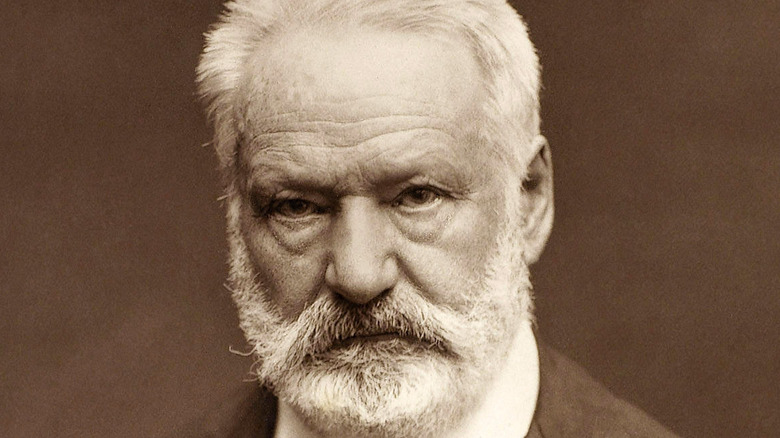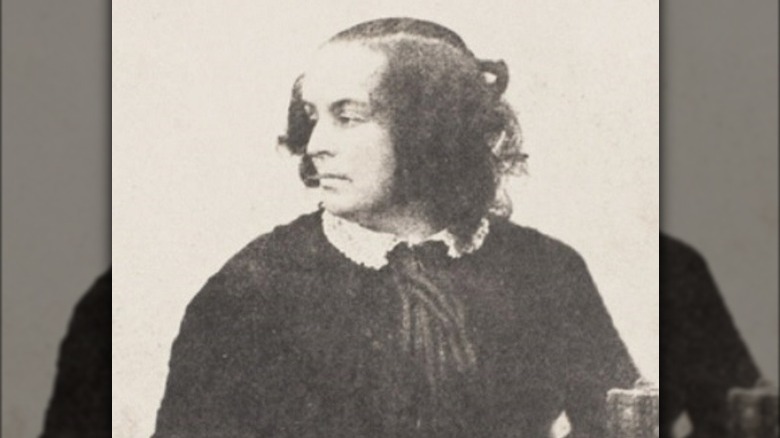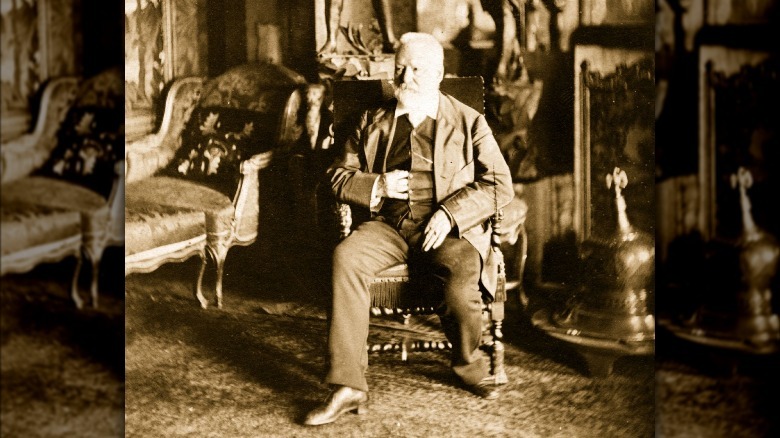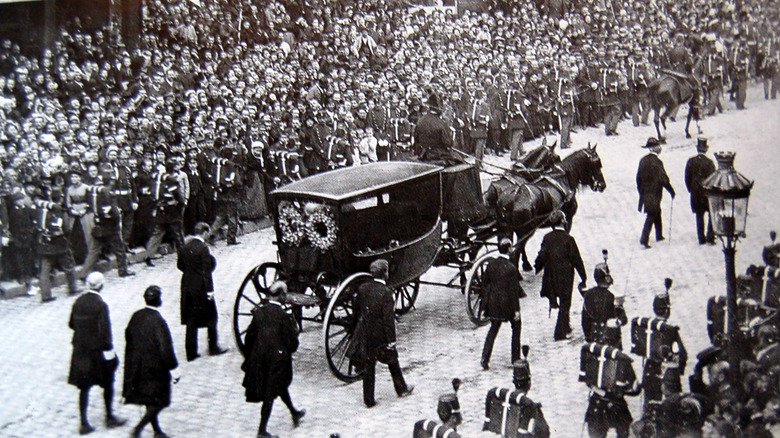Why Brothels In France Closed In Honor Of Author Victor Hugo's Death
We may receive a commission on purchases made from links.
Victor Hugo was a French author most known for the gothic novel "The Hunchback of Notre Dame" and the historical fiction "Les Misérables," both of which have been adapted into theater productions and films. Hugo was born in Besançon France in 1802, but he spent his childhood years in Paris, and he studied law for three years but never practiced, according to Britannica. Instead, Hugo pursued a career in literature and published poems. His first novel, "Hans of Iceland," was published in 1823 when he was just 21 years old.
Hugo fell in love with his childhood friend, Adèle Foucher, but his mother didn't approve of the relationship. In 1821, his mother died, and the following year, he received a pension from a book of poems he published, which allowed him to marry Foucher. Hugo wrote Foucher many love letters, and it seemed he was deeply in love. In one letter, he wrote, "... To-morrow, were I even dead, the sweet tones of your voice, the tender pressure of your lips, would call me back to life again" (via Art and Thoughts). By 1930, the couple already had five children together. According to Victor Hugo specialist Marva Barnett, Foucher didn't want to have more children and chose to be abstinent, the only 100% effective birth control method. Hugo reportedly had an insatiable sexual appetite, but he remained loyal to Foucher. Just a year later, however, Hugo had a hunch that his wife had fallen in love with someone else.
Victor Hugo's marriage
Around the time Adèle Foucher (pictured above) enforced abstinence, Victor Hugo was busy working on a play titled "Hernani." His close friend, literary critic Charles Augustin Sainte-Beuve, spent time at his home and grew close to Foucher. As noted by Marva Barnett, Sainte-Beuve and Foucher exchanged love letters, but their affair wasn't consummated. However, Hugo was not oblivious to the closeness between them and in 1831, he sent a letter to Sainte-Beuve that read, "I am convinced that it might be that what has all my love might have ceased to love me, and that it may have had a little bit to do with you . . . I don't know where I stand with the two beings I love most in the world. You are one of the two." Hugo reportedly gave Foucher the choice to be with Sainte-Beuve, but she preferred to stay with her husband. In fact, Hugo and Foucher remained married until her death in 1868.
Hurt by the betrayal from his wife and friend, Hugo sought solace from a woman named Juliette Drouet, who was an actress in one of his plays. The two began an affair in 1833, and Drouet confessed her love for the author in thousands of letters, sometimes writing to him a few times in one day. In one of them, she wrote, "Let me go with you wherever my happiness is threatened, let me be the wife of your mind and heart, if I cannot be yours in law" (via The American Reader). Hugo and Drouet maintained their affair until her death in 1883, but he was far from faithful to his mistress.
His many affairs
Victor Hugo had numerous sexual partners during his lifetime. The book "The Intimate Sex Lives of Famous People," described the writer as having an extremely active sex life. "It was not unusual for him to make love to a young prostitute in the morning, an appreciative actress before lunch, a compliant courtesan as an aperitif, and then join the also indefatigable Juliette for a night of sex." Hugo once said that women found him irresistible, and even his son's lover didn't escape his allure.
As reported by The Sun, Charles Hugo told his father that he had an inkling that his lover was having an affair and sought his help. The elder Hugo wrote the young lady a series of lascivious letters, perhaps in an effort to expose her, and they ended up having a sexual encounter. Charles learned of the incident but didn't blame his father. "You choose the father and glory. I cannot blame you. Any woman would," he wrote his lover. Hugo wrote about his affairs in his diary, but he used code words to somewhat censor some details. He had such an active sex life that Graham Robb wrote in his book "Victor Hugo: A Biography" that "a statistical analysis shows that, from 1847 to 1851, he had sex with more women than he wrote poems" (via Independent). Throughout it all, however, he always went back to Juliette Drouet.
Sex workers honored him after his death
In 1878, Victor Hugo was diagnosed with cerebral congestion at 76 years old. Five years later, his ever-loyal mistress, Juliette Drouet, died at the age of 77, per Britannica. Hugo's old age didn't abate his sexual appetite. According to Short History, he recorded 83 sexual encounters in his journal in the span of four months just before he died of pneumonia on May 22, 1885, at 83 years old. It was the writer's request to be buried like a pauper, but his wish wasn't granted. Instead, he was given a state funeral, and about 2 million people attended the procession from the Arc de Triomphe to the Panthéon.
Among those who paid their final respects were sex workers from the brothels Hugo frequented. According to The Guardian, Parisian brothels closed their doors for a day to allow sex workers to mourn the loss and attend his funeral procession. Moreover, as Graham Robb wrote in his book, the sex workers reportedly cloaked their genitals using black fabric in an odd show of respect. Hugo's tomb is located at the Panthéon alongside other respected figures including Voltaire, Louis Braille, and Jean-Jacque Rousseau.



